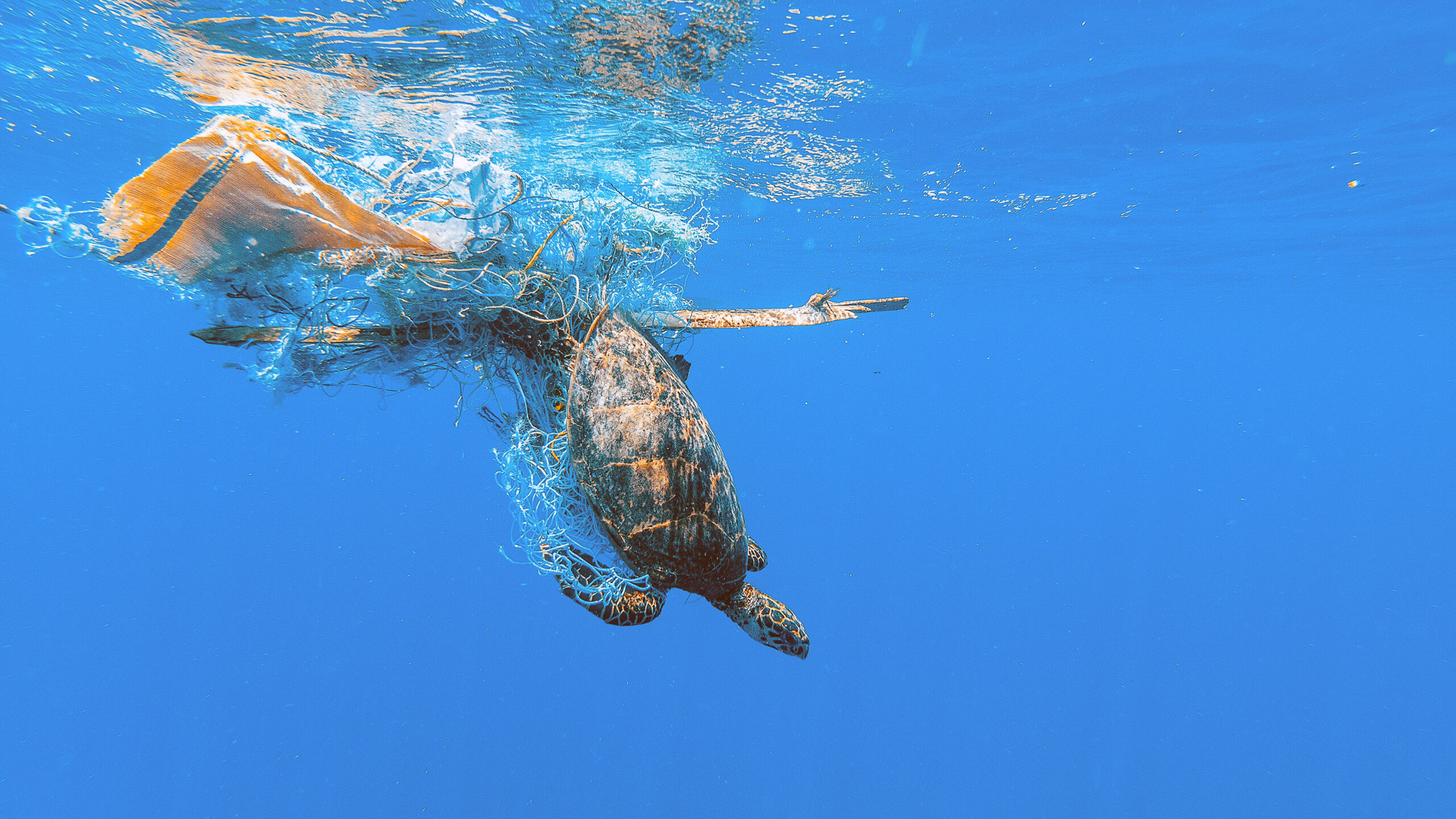How much might countries benefit from cleaning up plastic pollution in the ocean?

Bottles and caps, cigarette butts, food wrappers, straws, cups, fishing nets, and single-use bags are plastics that are commonly found polluting the oceans. As much as 12.7 million metric tons of plastic is estimated to enter the oceans each year.
Macroplastics — anything over 5 millimeters — can entangle, suffocate, or, if ingested, starve birds, whales, dolphins, sea turtles, fish, and other marine animals. These plastics can damage ecosystems, including coral reefs, and transport invasive species. Over time, they can break down into microplastics, posing further environmental and human health risks.
When you consider that oceans cover 70 percent of the Earth, the problem seems overwhelming. Many countries and organizations have been working toward a legally binding global treaty to stem plastic pollution, but getting everyone to agree has proven difficult.
But what if cooperation led to economic benefits?
A Clark University professor and his European colleagues wanted to estimate the possible benefits — and costs — of an international agreement that enabled cooperative management of marine plastic pollution in the North Atlantic. Funded with a $968,673 grant fromthe UK’s Economic and Social Research Council, their study was recently published in Communications Earth & Environment.
The co-principal investigators included Robert Johnston, director of Clark’s George Perkins Marsh Institute and professor of economics, along with researchers from Plymouth Marine Laboratory, University of Glasgow, and University of Aberdeen in the United Kingdom; Berlin School of Economics and Law in Germany, and the Budapest University of Technology and Economics in Hungary.
“The connected nature of the marine environment suggests that coordinated actions by countries sharing an ocean border may provide more effective pollution control than unilateral actions by any one country,” according to the article. “However, countries often fail to cooperate, even when joint economic benefits would be higher under cooperation.”
“If you take all of these countries combined, the amount of money that they would spend cleaning up additional marine plastic pollution — or preventing emission in the first place — would be far offset by the billions of dollars of benefits that would result.”
— robert johnston
Integrating game theory, benefit-cost analysis and a “particle-tracking” model that estimated the movement of plastic pollution over the ocean, the authors describe how they developed a framework to arrive at the potential economic benefits of cooperative marine plastic pollution management. Their study focused on 16 nations that emit plastic pollution into the North Atlantic, including Belgium, Canada, Denmark, the Dominican Republic, France, Germany, Haiti, Ireland, Mexico, Morocco, the Netherlands, Portugal, Spain, Sweden, the United Kingdom, and the United States.
“When considering transboundary pollutants such as marine plastics, independent and uncoordinated actions of each country generally lead to a net loss of global social welfare or economic benefits,” says Johnston, who is affiliated with Clark’s new School of Climate, Environment, and Society. “Plastics emitted into the ocean from the U.S. don’t stay in the U.S., they are transported elsewhere via ocean currents. This pollution causes damage in other countries.

“The same applies to other countries that produce plastic pollution,” he adds. “In the absence of a cooperative agreement, each country may not fully consider the impacts of its pollution on other countries. This lack of coordination causes multiple problems, including too much plastic entering the marine environment, which leads to excessive damage across all countries combined.”
Yet, as the modeling framework indicates, if the 16 countries fully cooperated as part of a binding international agreement, they would realize roughly $36 billion in net benefits and 64 percent fewer plastic emissions to the ocean each year, according to the article.
“If you take all of these countries combined, the amount of money that they would spend cleaning up additional marine plastic pollution — or preventing emission in the first place — would be far offset by the billions of dollars of benefits that would result,” Johnston explains.
“But those benefits would be shared unequally across countries. Some countries would benefit a lot, some countries would benefit a little, and some countries would lose,” he adds. “So for an agreement to occur you would probably need some kind of side payment or other arrangement to induce participation by the countries that would otherwise lose.”
The study is a “wakeup call to countries around the world to work harder toward international agreements on transboundary pollutants such as marine plastics,” Johnston concludes. “The benefits of cooperation to address these problems far outweigh the costs.”


